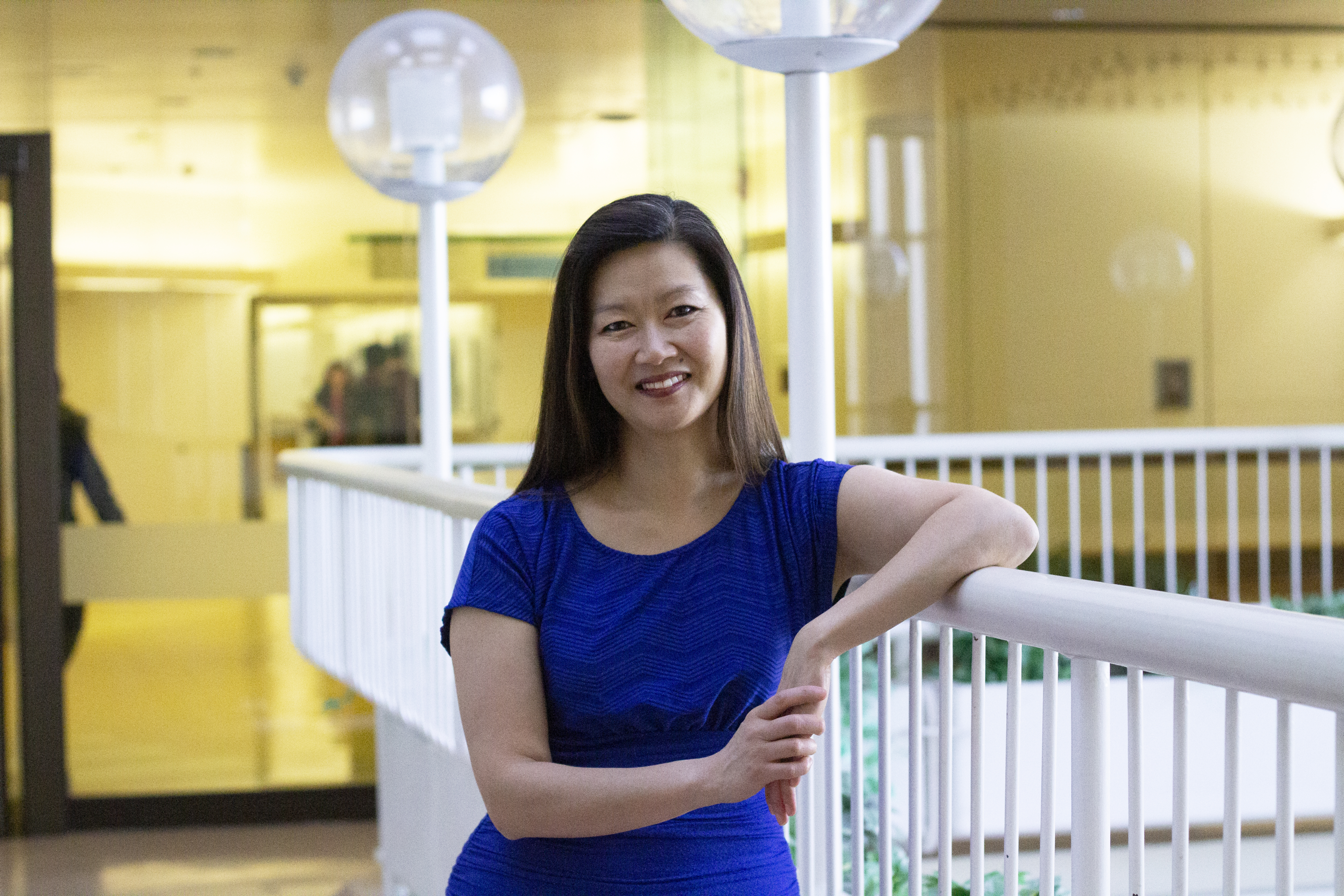
Lillian Au, '95 MD, believes that teaching the next generation of physicians is more than just a job, it's a privilege.
Lillian Au, '95 MD, believes that teaching the next generation of physicians is more than just a job, it's a privilege. The undergraduate program director at the Department of Family Medicine practiced in the community for fourteen years before she applied to her current role. She currently teaches family medicine residents and medical students in a variety of settings, including lecture format, small groups sessions as well as in clinical practice.
For Au, the experience of teaching students is especially rewarding. She is the recipient of multiple teaching awards from the Medical Students' Association, and says awards from students are the best kind of reward.
"They are so valuable because it informs us in this really special way that the students appreciate our hard work, and we're doing the right thing," she said. "When you see that you've helped someone make a connection that they didn't have before, and you watch that light bulb go off in somebody's head, it's really cool. The students should never discount how important these awards are for us as teachers."
Learn more about Au's teaching philosophy in the Q&A below.
What do you enjoy about teaching Family Medicine?
To me, being a family physician is about building relationships-it's about communication and connection with my patients. A lot of people think that physicians take care of individual aches and pains but it is a lot more complex than that. Comprehensive care requires that we take care of the patient concerns in the context of who they are-their family, their work and their life experiences. It requires a relationship and connection and excellent communication skills. The same type of relationship can be said about teaching students.
One of the reasons I teach is to help students develop that physician identity. Even if I am teaching them about a specific medical topic, if they understand that being a physician is building relationships and communication, they will hopefully model after this as they learn to become a physician.
What is your philosophy on mentorship?
I can think of a couple of people who influenced my journey, which makes me realize how much influence teachers can have. I'm currently working on a master's degree in medical education, and the first few classes were about teaching philosophy and how a teacher understands and relates to learners. There's this concept called transcendence where a learner has learned something-not just a minor thing, but something that is really transformative. The scary part is that teachers often don't realize a student has reached transcendence or has been transformed by something they have been taught. It makes one realize how truly privileged we are as teachers (and somewhat terrified at that level of responsibility).
This concept is really significant because one never knows when something they have taught is important. We have to teach with care and thoughtfulness so that we're remembered for the positive experiences as opposed to the negative ones.
Is there a question your students ask you all the time?
One of the common things students ask about is career choices. I'm a family physician but my first CaRMS match was actually in general surgery. I trained in surgery for three years and then switched to general practice, so I get a lot of questions about what influenced me to pick general surgery or family medicine. I strongly feel that finding a physician who is a positive role model and a mentor who demonstrates a passion for medicine has the greatest influence in a student's career choice.
What advice would you give to a clinical teacher who is just starting out?
I like to remind our new preceptors that teaching not only bears great responsibility but also great rewards. I hope our clinician teachers know that they are more than just instructors, they are role models, and that they are mentoring their future colleagues. If that student identifies with you, they might even choose a career path they had not considered before because of your influence.
The last piece of advice-don't be afraid to show your passion for teaching and medicine. It's inspiring, and it makes us all (teacher and student alike) better physicians.